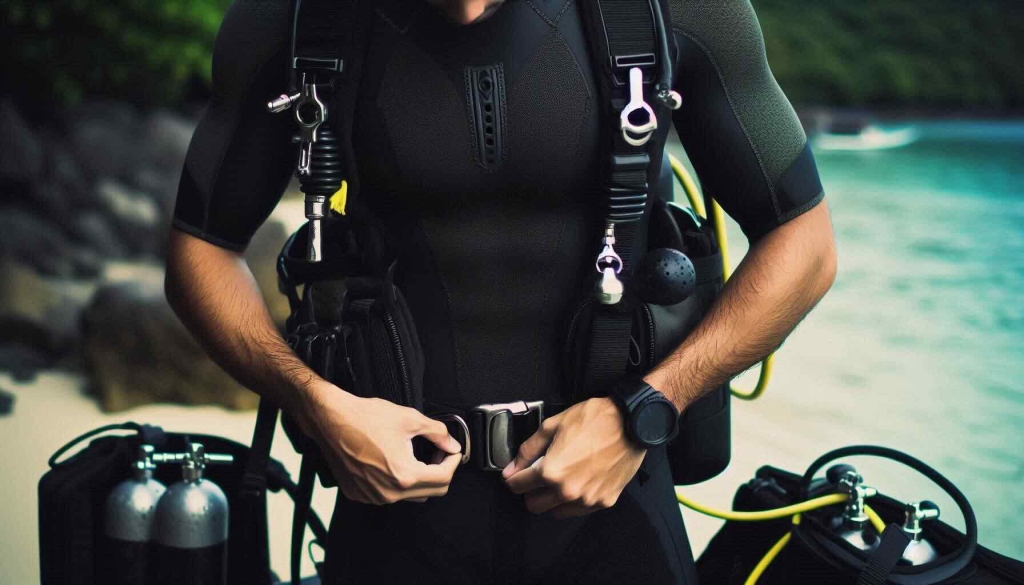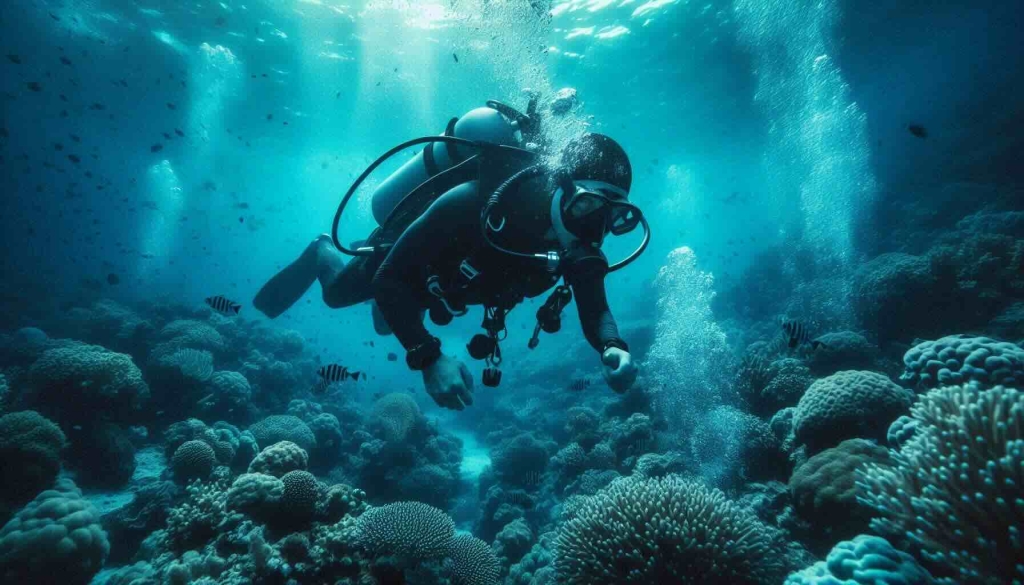Scuba Weight Calculator: Easy Guide to Perfect Buoyancy
Learn the easy ways to calculate your weight to dive smoothly.
Ready to dive into the underwater world? Great! But first, let's talk about weights. Getting your weight right is super important. Too much weight? You'll sink like a rock. Too little? You'll float like a cork. Neither is fun!
Why Is Getting Your Weight Right So Important?
Imagine you're floating in clear water, face-to-face with a sea turtle. You're not struggling to stay down or up. That's what good weighting feels like!
Here's why it matters:
Safety: It helps you stay in control underwater.
Comfort: No more fighting to stay at the right depth.
Air savings: You use less air when you're not fighting buoyancy.
Protect sea life: Good control means you're less likely to bump into coral.
The Science Bit (Don't Worry, It's Easy!)
Buoyancy is about two things: what pulls you down and what pushes you up. When these are equal, you float perfectly. That's what we want!
Your body naturally floats a bit. But then we add wetsuits, BCDs, and tanks. These change how you float. Weights help balance things out.
Methods to Calculate Your Scuba Diving Weight
Let's explore three primary methods for determining your ideal weight:
1. Basic Weighting Guidelines
This method provides a rough starting point:
Swimsuit or dive skin: +0.5–2 kg (1–4 lb)
3mm wetsuit: +5% bodyweight
5mm wetsuit: +10% bodyweight
7mm wetsuit with hood: +10% bodyweight + 1.5-3 kg (3–5 lb)
Neoprene drysuit: +10% bodyweight + 3–5 kg (7–10 lb)
Trilaminate drysuit: +10% bodyweight +1.5–3 kg (3–5 lb)
Adjust for gender and water type:
Women: Add 4-5 lb (~2 kg) for saltwater, subtract for freshwater
Men: Add 6-7 lb (~3 kg) for saltwater, subtract for freshwater
Note: These guidelines often result in overweighting and should be refined through in-water checks.
2. Pre-dive Weight Check
Perform this quick assessment before your dive:
At the surface, take a deep breath and hold it
Cross your ankles to prevent fin movement
Keep arms against your body
Hold your BCD's low-pressure inflator upright and deflate the BCD
You should float at eye level
Exhale completely
You should begin to slowly sink
If not, adjust weight until you achieve this
Add 1-2kg to account for air consumption during the dive

3. Shallow-water Weight Check
For precise weighting, conduct this test:
Hover neutrally at 3-5m depth while breathing normally
Deplete your tank to 30 bar
Slowly reduce weight
When you need to adjust your breathing to maintain depth, you've reached minimum weight
This test helps make sure you're not over or underweighted.
Where to Put Your Weights
Where you put your weights matters too. Most divers use a weight belt or BCD pockets. But you have other options:
Back pockets: Some BCDs have pockets in the back. These can help you stay flat in the water.
Tank weights: These can balance out changes as you use air.
Ankle weights: These can help if your feet keep floating up.
Try different spots to see what feels best.
Common Mistakes to Avoid
Even with a calculator, it's easy to make mistakes. Watch out for these:
Using too much weight: Don't add extra weight to make up for poor skills.
Forgetting things change: Your weight needs might change based on many things.
Not checking again: Always check your weight if you change gear or dive somewhere new.
Trusting the calculator too much: Use it as a guide, but trust your feeling too.
Forgetting about air use: You get more buoyant as you use air.
Uneven weight: Make sure your weights are spread out well.
Advanced Tips for Pros
Once you're good at basic weighting, you can try:
Trim weights: Small weights in specific spots for perfect balance.
Minimal weights: Using as little weight as possible (takes practice!).
Changing weights during a dive: For expert divers only!
Helping the Environment
Good weighting helps protect the ocean too! When you're weighted right, you're less likely to bump into coral or kick up sand. It's like being an underwater ninja, moving without leaving a trace!

Staying Safe
Good weighting is super important for safety. Too much weight makes it hard to swim up in an emergency. Too little weight makes it hard to stay down. Always make sure you can drop your weights quickly if you need to.
Different Dives, Different Weights
You might need to change your weights for different dives:
Cold water: You'll wear a thicker wetsuit, so you'll need more weight.
Warm water: Thinner wetsuit means less weight.
Deep dives: Your wetsuit squishes as you go deeper, so you might need less weight.
High altitude: You might need less weight when diving in mountains.
Strong currents: You might need to adjust to stay in control.
Always check your weight when diving somewhere new.
Wrapping It Up
Getting your weight right is like unlocking a superpower underwater. With a weight calculator and some practice, you'll be gliding through the water in no time. Remember, it's all about finding that perfect spot where you're not fighting to stay up or down.
Keep practicing, and soon you'll know just what you need for any dive. Now grab your gear, use that calculator, and get ready for some amazing underwater adventures!
FAQ
Do I need different dive weights for fresh and salt water?
Yes! You need about 5% more weight in salt water. It's denser, so you float more.
How often should I check my dive weight needs?
Check whenever you change gear, dive somewhere new, or if your body changes a lot.
Does being overweight affect how I float?
Yes. People with more body fat usually need more weight to sink.
Is it better to have a bit too much dive weight or too little?
A tiny bit too much is safer. But the goal is to be just right according to your current weight!
How do I know if I have too much weight on a dive?
If you struggle to float, need lots of air in your BCD, or feel pulled down, you might have too much weight.
Does water temperature change how much dive weight I need?
Kind of. In cold water, you wear a thicker wetsuit. Thicker wetsuits need more weight.

I'm a scuba enthusiast, and marine life lover. I enjoy writing about my diving adventures and sharing my knowledge with others.

I'm a passionate scuba diver and love to share my experiences with you. I enjoy writing about my experiences and sharing my knowledge with others.